it reminded me of my parents they always told me to do what they wanted me to do :/
12 Unintentional Mistakes We Make That Could Affect Our Children Later in Life
Having a child can make us appreciate our parents that much more as we begin to understand how difficult it can be. Even when we think we’re doing it with the best intentions, our behavior can be perceived as undermining and hurtful by our children. That’s because it can be easy to forget how the child sees and experiences the world and how much they look up to us.
Bright Side has collected classic parenting pitfalls that any of us can find ourselves in, along with a bonus feature about how important it is not to feel like a bad mom.
1. Needing them to be physically affectionate with you
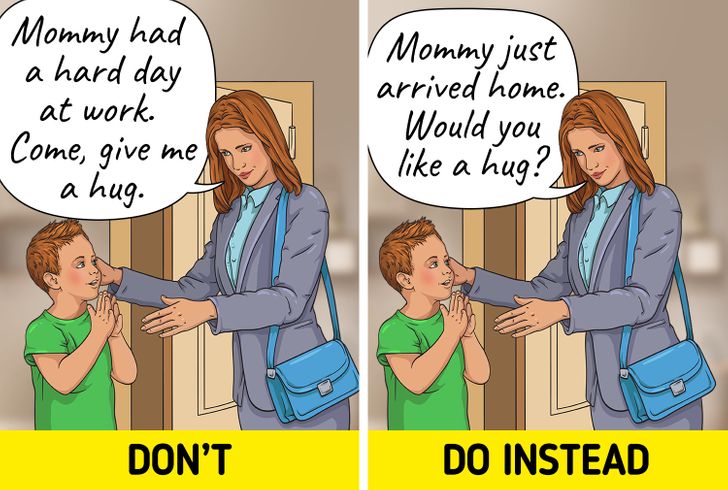
This should be avoided because it can make your child feel that their main purpose in life is to please others. Basically, they can feel that they don’t have their own rights and that their own needs are secondary. This can mean that later in life, they’ll feel worthless when they aren’t pleasing others. This is known as “people-pleasing” and can be closely connected to the feeling of insecurity as well as a low sense of self-worth.
2. Making them responsible for your emotions
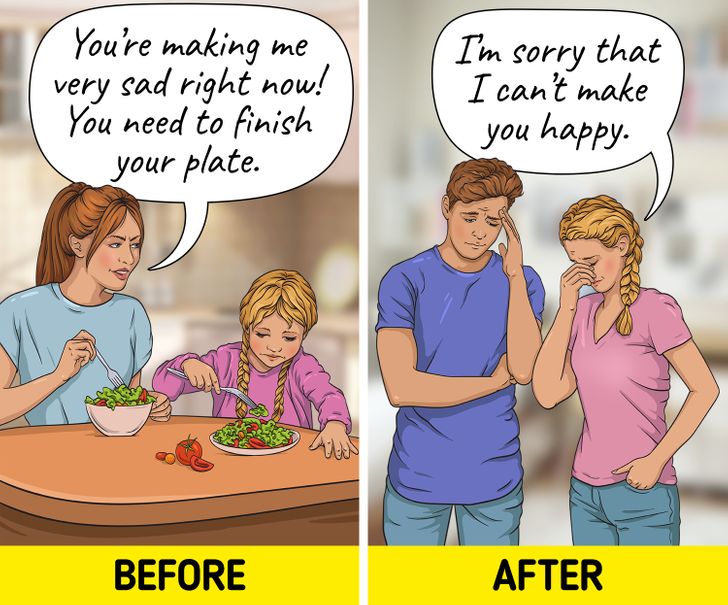
Such behavior can burden your child with a sense of over-responsibility or codependency. This can lead them to have dysfunctional relationships later in life, especially with a partner and also with friends. When it comes to romantic relationships, they may feel that they’re responsible for making their partner happy instead of understanding that it’s not something they can control.
3. Telling them your intimate and private life in detail

Because children are dependent on adults, it’s important that they feel safe with their parents. When a parent tells their child all the details of their private life, a sense of authority can be lost as the boundaries are broken. It can lead to rebellious behavior later in the child’s life as well as discipline issues.
Of course, this doesn’t mean that you shouldn’t share anything with them. But instead, it’s about boundaries and understanding what too much information can do to your child and the relationship you have together.
4. Making them suppress what they want

Demands, such as taking up sports or picking up a career that you think is best, can have a lasting effect on your child. They may grow up to be deeply rebellious in order to prove that they don’t answer to anyone else’s demands, or they’ll become human doormats, unable to stand up for themselves and setting themselves up to be taken advantage of by aggressive people.
5. Being a “helicopter” parent
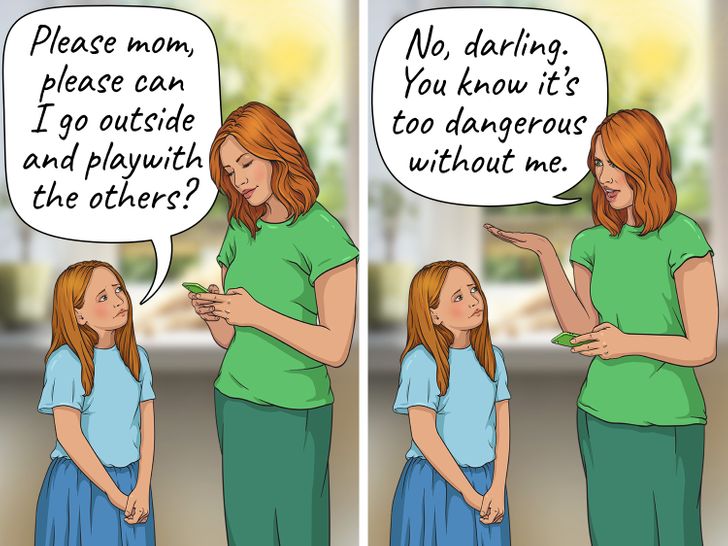
“Helicopter parenting” means that you control many aspects of your child’s experiences under the impression that you’re keeping them safe. Essentially, you’re stepping in to save them from all consequences, the good and the bad. The problem with this is that, from the child’s perspective, they learn from you that the world and people are unsafe, something that they may find difficult to change later in life.
6. Trying to spend time with them, 24/7
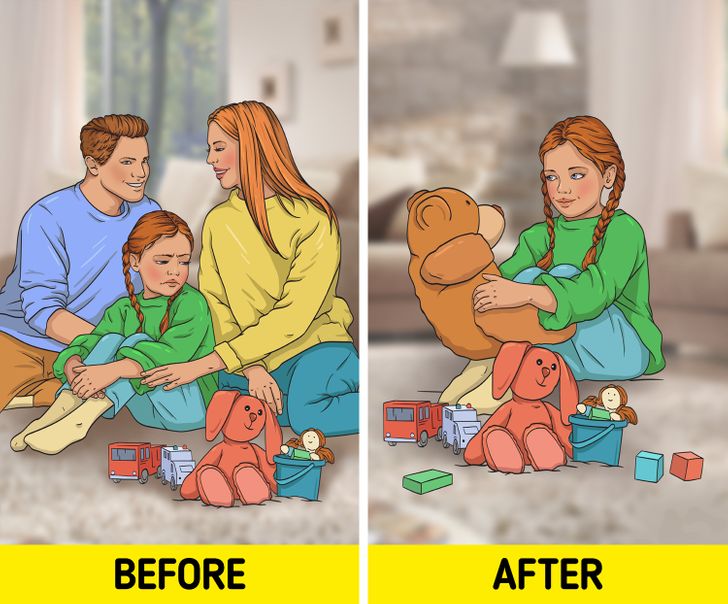
Of course, you want to be by their side and not let them out of your sight. However, independence is also important. Simple things like playing alone can be an important part of your child’s development. They learn to entertain themselves and have an independent activity that they can enjoy without your help.
7. Ignoring important chats
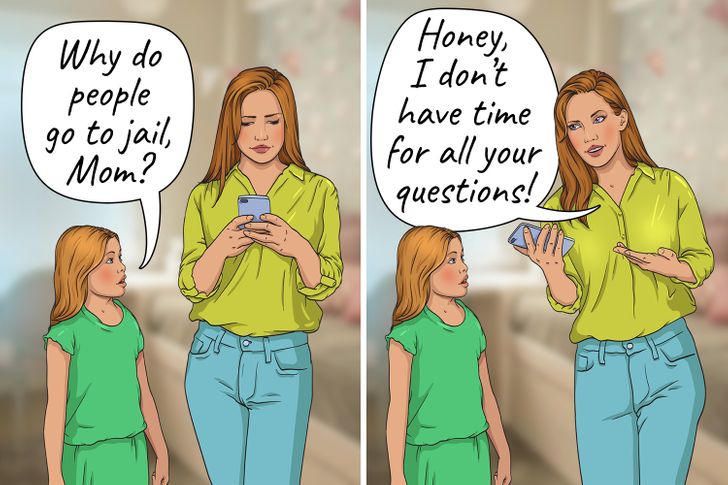
Glossing over serious chats is a missed opportunity to educate and positively impact your child. It could be anything from inquisitive questions to big social topics. They feel safe enough to ask these questions and they should be respected. This can also let them know that it’s okay to ask these questions and that they can come to you when they need to.
Instead, you should make them feel comfortable and be as open and neutral as possible when replying.
8. Forcing friendships on them
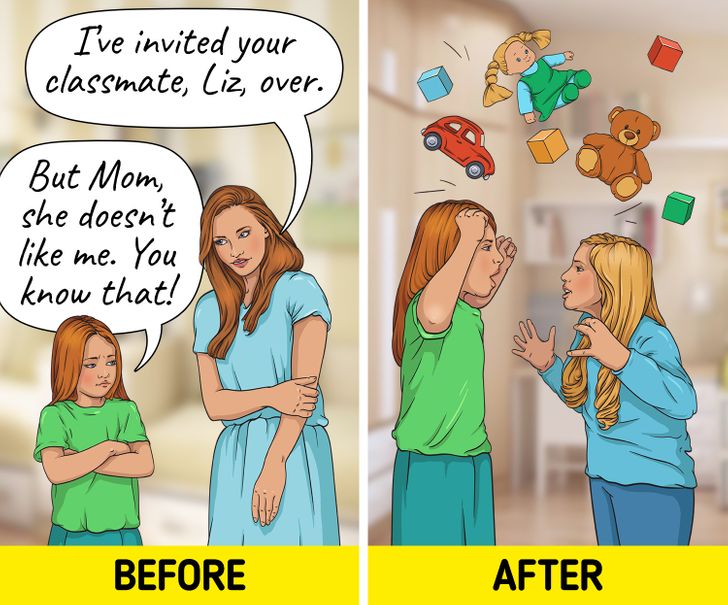
Of course, we can encourage our children to make friends, but only if we listen to them. Forcing your child into a friendship that they’re not particularly interested in, or even don’t want, will lead to the friendship’s failure. Doing this can make your child feel unheard and leave them thinking that you broke their trust.
If their trust is broken repeatedly, it can lead your child to be anxious and struggle to trust people later in life. They may also suffer from feeling isolated and uneasy around authority figures, among other things.
9. Comparing them to other children

Not only can this make your child feel guilty for being themselves, but they can also be hurt about not being who they think you want them to be. It can also harm their friendships as rivalry and jealousy start to appear, making them feel that they’re imperfect in comparison. This can leave your child with low self-esteem and ideas of perfectionism, assuming that they’ll never be enough in the eyes of others.
10. Often changing the nanny or other child care
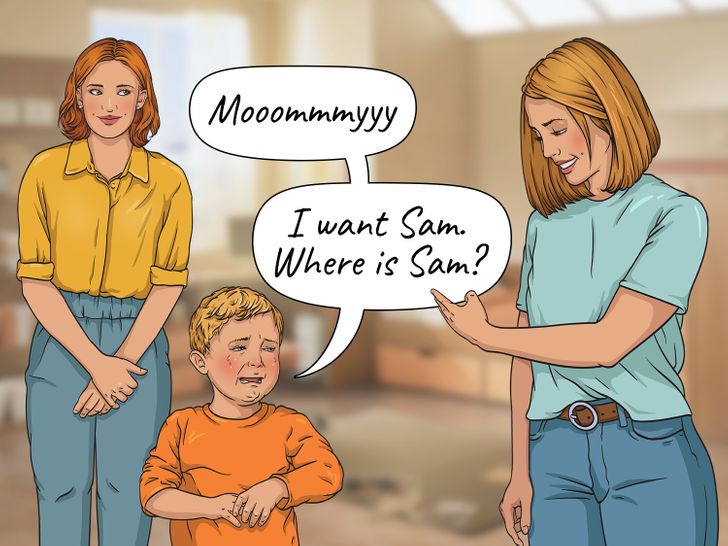
Instability can be difficult for your child, especially if they go through large changes when they’re young. A lack of routine can be a big change since with a different nanny coming and going, your child won’t understand why. From their perspective, they form a bond with another person who simply disappears only to be replaced by another.
This can affect your child by making it difficult for them to make good, healthy attachments with people later in life, and they could also start to display problematic behavior.
11. Not trusting and believing them enough

Believing another child instead of your own and not allowing them space to (safely) experiment and try new things can break the trust between you. This kind of behavior can cause your child to rebel and do things that they aren’t supposed to. By showing your child that you trust them, you can help them to act with more integrity and honesty as they don’t have to go out of their way to prove themselves to you.
12. Projecting your personal experiences onto them

We all have our own fears and concerns in life, and we want our children to be safe and happy. However, when you start to put your own personal fears and expectations onto your child, it can cause them a lot of grief. From their perspective, they can mistake your fear for disappointment and believe that you think they will fail regardless. This can leave them feeling unsupported and insecure.
Bonus: feeling like you’re failing as a parent
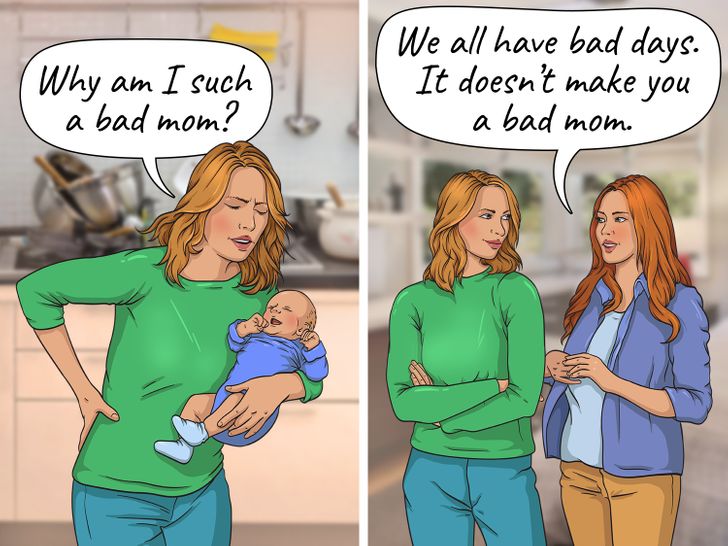
Perhaps the baby isn’t sleeping well, potty training isn’t going so smoothly, or you feel overwhelmed by your household chores. This is known as “mom guilt,” when you feel guilty for not being perfect. Asking for help can be a powerful start, as well as opening up to other moms to realize you’re not alone in how you’re feeling. This can help you feel less alone and isolated as you share experiences.
How do you handle difficult topics with your children? What do you wish your parents had done differently?
Comments
Related Reads
What 10+ Celebrities We Know in Their Later Years Looked Like in Their Youth

18 Grandmothers That Still Know How to Have Fun

15+ Parents Who Know Firsthand That Children Are Not a Beautiful Picture but Hard Work
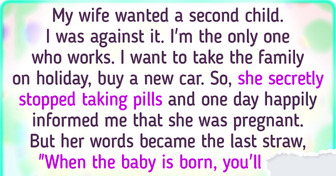
15 Stories of Exes Who Can Turn Your Life Into a Nightmare

15 People Share Family Shenanigans That Will Forever Remain in Their Memory
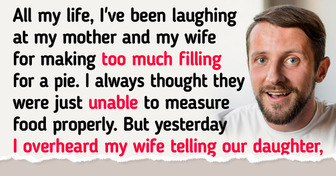
My Husband Pushes Me to Adopt His Late Ex-Wife’s Affair Child, or She’ll End Up in Orphanage
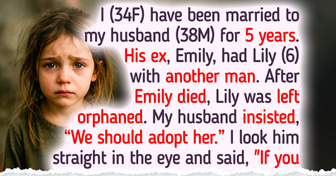
15+ Wedding Stories That Every Guest in Attendance Surely Remembers

15 True Stories That Made Us Say, “The World Has Real Angels in It”
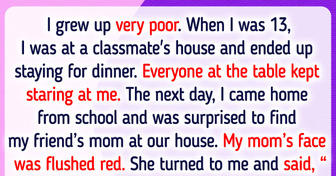
15+ Stories About Teachers Who Gained Students’ Respect With Just One Deed

10 Parents Who Held Their Children’s Hands Through Life’s Stormiest Moments
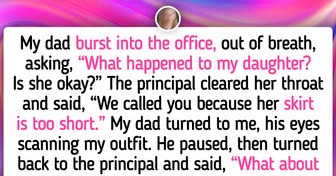
16 Tweets From People That Haven’t Quite Gotten Over Their Exes

12 Stories That Prove Home Renovations Are Not for the Faint of Heart
